心系社区
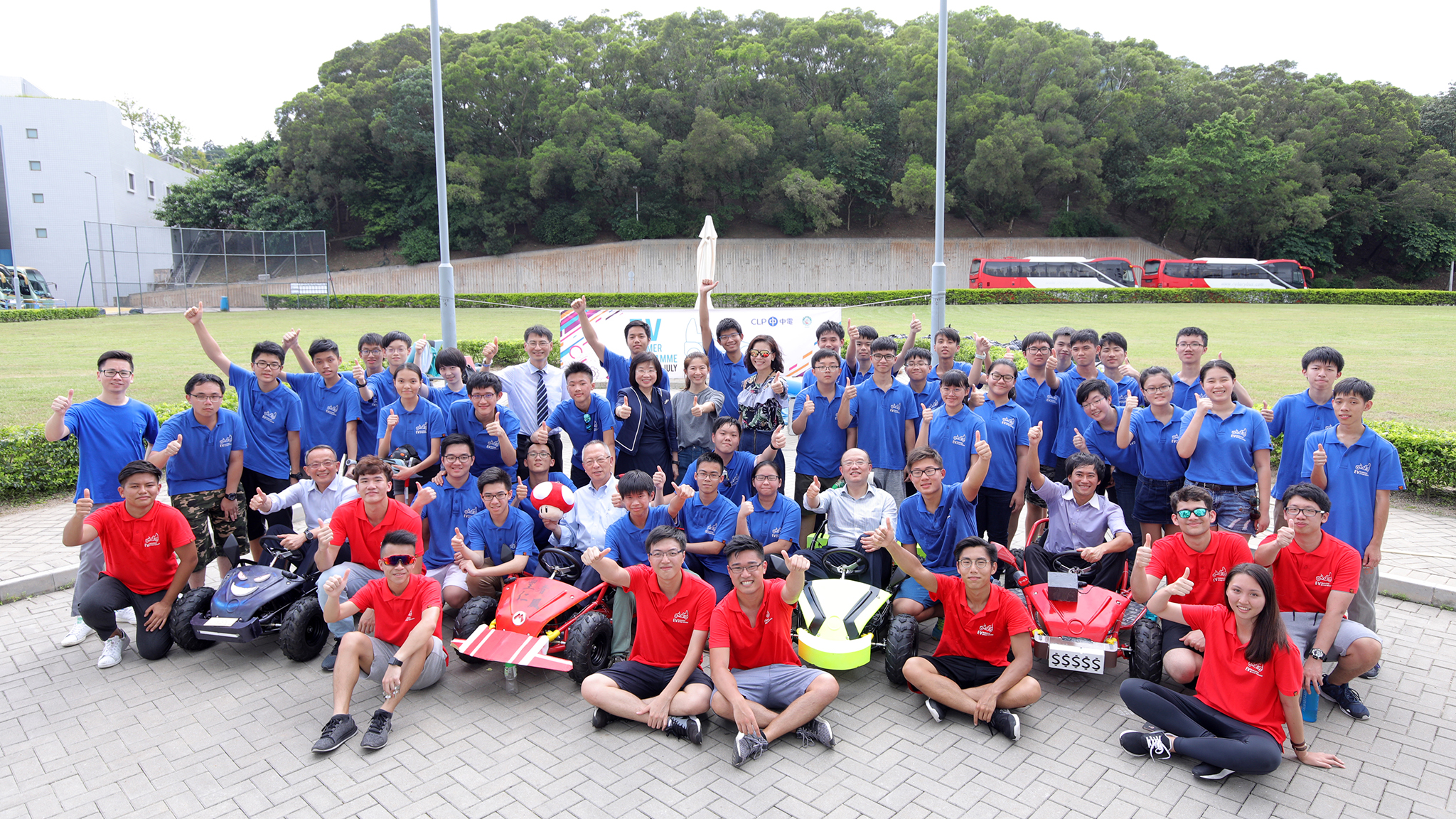
鹏程青年工程师学苑
鹏程青年工程师学苑旨在提供创新及以学生为中心的平台,鼓励高中生投入真实的工程体验,启发他们活用工程师惯用的思考模式。学苑透过举办一系列协作和自主研习活动,让学生代入工程师思维,养成不屈不挠的解难精神。
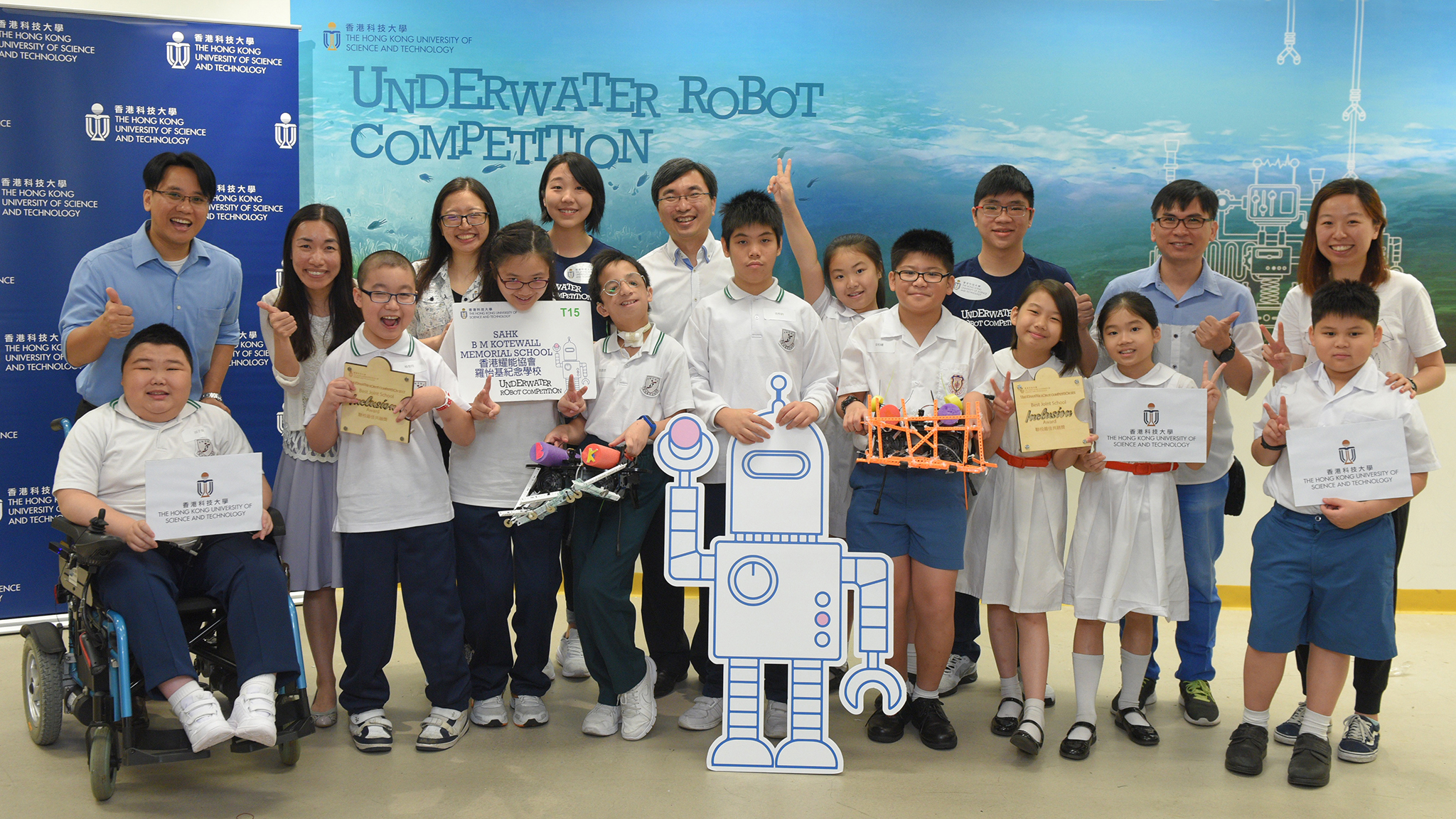
科大水底机械人大赛
水底机械人大赛旨在提供独特的 iSTEAM(即共融、科学、科技、工程、艺术和数学)学习体验。 自2015年以来,大赛让工学院的学生积极应用所学知识,以增强与社会的联系。他们与不同学院的学生合作,肩负领导角色,带领逾1800名小四至中三的学生,包括有特殊教育需要、肢体伤残、来自基层和少数族裔的学生及教师,一同享受体验式学习和社区参与活动。
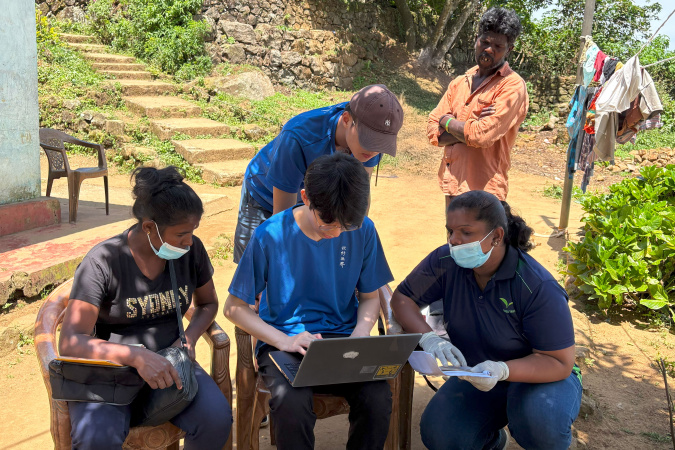
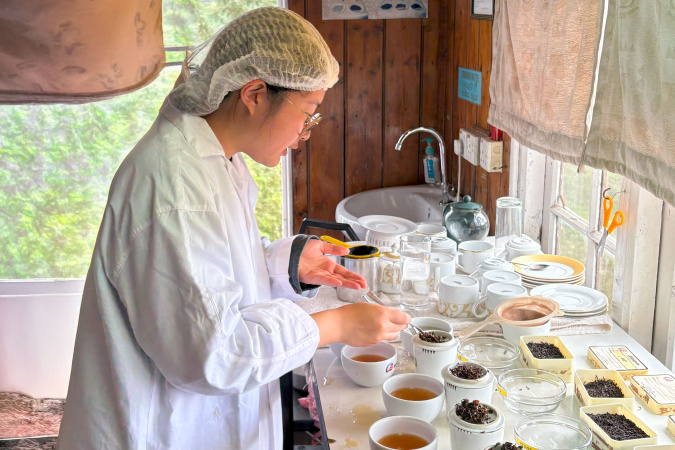
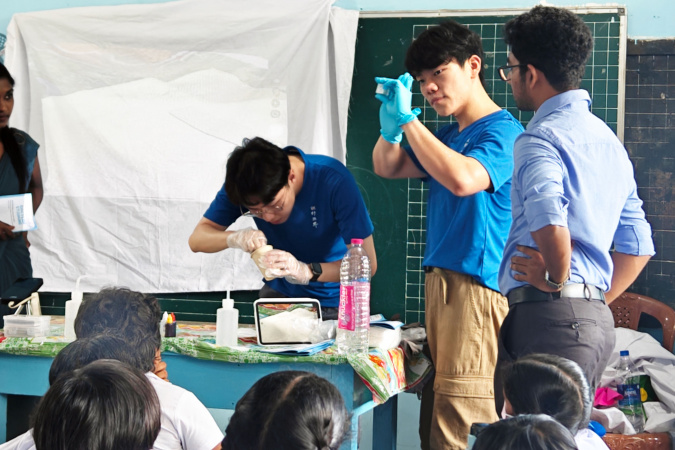

视野无界
视野无界是科大的本科生学习平台,旨在鼓励学生将热诚和创意转化为解决世界各地医疗问题的创新解决方案。视野无界融汇课程、团队项目和海外考察团,提供跨越学习领域、地域和文化的学习体验。视野无界的项目针对资源匮乏的社群,致力带来具社会影响力的具体解决方案。
ENGG 1900 Service Learning Program [1 Credit]
With the collaboration of local or non-local NGO and support from the School of Engineering, students enrolled in this program would be provided an opportunity to engage themselves in community service. Lectures, talks or training sessions will be provided to students to build up their communication skills and / or broaden their horizon. Students should also fulfill the requirements set by the NGO. At the end of the Program, students are required to submit report, reflective paper, group projects or to make a presentation as appropriate. They may also be required to make evaluation. Cantonese may be used in off-campus trainings, in some situations. Enrollment in this course requires instructor's approval. Students may not repeat the course for credits. Graded P or F. Maybe graded PP.
Course Intended Learning Outcomes:
- Identify the problems that the service providers is facing
- Demonstrate empathy for people in need and reflect on their roles and responsibilities as a responsible citizen
- Plan, organize and conduct community project(s) in collaboration with community organizations
- Communicate with people who are involved including classmates, service providers and the beneficiary
- Appreciate the value of social responsibility, cultural diversity and active citizenship
- Evaluate the methods used in providing community service
- Critique on the role of Engineers
ENGG 2900 Community Services Project [1-4 Credit(s)]
The course is offered in a form of a community project at a designated non-governmental organization (NGO) under the supervision of the School. Students are required to attend all the training sessions, design and implement the service project / participate in the service learning tasks as instructed by the host NGO and / or the course instructors. By the end of the course, students have to submit a reflective statement in the format of a paper, a group project report or a presentation to demonstrate the attainment of all intended learning outcomes, in addition to other requirements of the relevant NGO as appropriate. Approval from the course coordinator is needed prior to enrolling in the course. Graded PP, P or F. Students may repeat the course for credits if different topics are taken.
ENGG 2900A Community Services Project: Developing Leadership Through Service Learning [2 Credits]
This course aims to increase students' involvement in community services and provide them learning opportunities through the social services programs such as fund-raising events, greening the society and elderly services. Under the supervision of the School, students will gain experience from developing a plan, marketing through implementation of projects at a designated non-governmental organization (NGO). Instructor's approval required. Graded P or F. May be graded PP.
ENGG 2900D Community Services Project: Underwater Robot Community Engagement Project [2 Credits]
This Project course gives HKUST undergraduate students the opportunity to work in teams from different schools, to serve identified community group (i.e. primary and secondary school students / South Asian youths etc.), to understand limitations on the served groups and to learn how to apply theoretical knowledge on the building of under-water robots. Throughout the project, HKUST undergraduate students will act as teachers by transferring their skills of under-water robot building to primary and secondary school students and / or South Asian youths. HKUST undergraduate students will also learn the skills of event management throughout the project. Students must obtain prior approval from course coordinator for enrolling in the course. May be repeated for credits, if different topics are taken. Graded P or F. May be graded PP.
Course Intended Learning Outcomes:
- To learn the multi-disciplinary basic knowledge of underwater robot design from instructors and peers
- To design custom-made learning guides for different served groups
- To transform from apprentices of underwater robots to become coaches of the served groups
- To experience the limitations of different served groups (i.e. primary and secondary school students / SEN students)
- To organize workflow of a two-day event on underwater robot design competition
- To participate in the team’s work with idea exchange and cooperation between different tiers.
UCOP 3200 Design for Global Health [3 credits]
This common core course is offered by Student Innovation for Global Health Technology (SIGHT) at HKUST, and is a project-based, experiential course that exposes students to tackle global health problems using design thinking as an innovation process. The goal of this course is to develop students’ critical thinking, understand the needs of different communities around the world, and improve communication, design skills through a multi-disciplinary, team-based design experience. Each team will set objectives at the beginning of the semester after getting the needs of communities via the project partners. There will be several task-based assessments throughout the semester to check the progress of each project team, as evaluated by the teaching team, faculty advisors, and project partners. At the end of the semester, students need to showcase their output as a roadshow. This common core course is open to students from any academic background looking for practical experience in design thinking and motivation to tackle global health issues.
Selected students from UCOP 3200 will take part in an overseas study trip, in which they visit the low-resource communities served by partner NGOs. The trip will be packed with on-site observations, data collection, interviews with stakeholders, and intensive brainstorming sessions. The students will also serve the underprivileged by conducting health workshops and implementing the products already developed in the prior semester. At the conclusion of the trip, the teams will present to partner NGO and receive feedbacks, and summarize their experience in learning portfolios.
